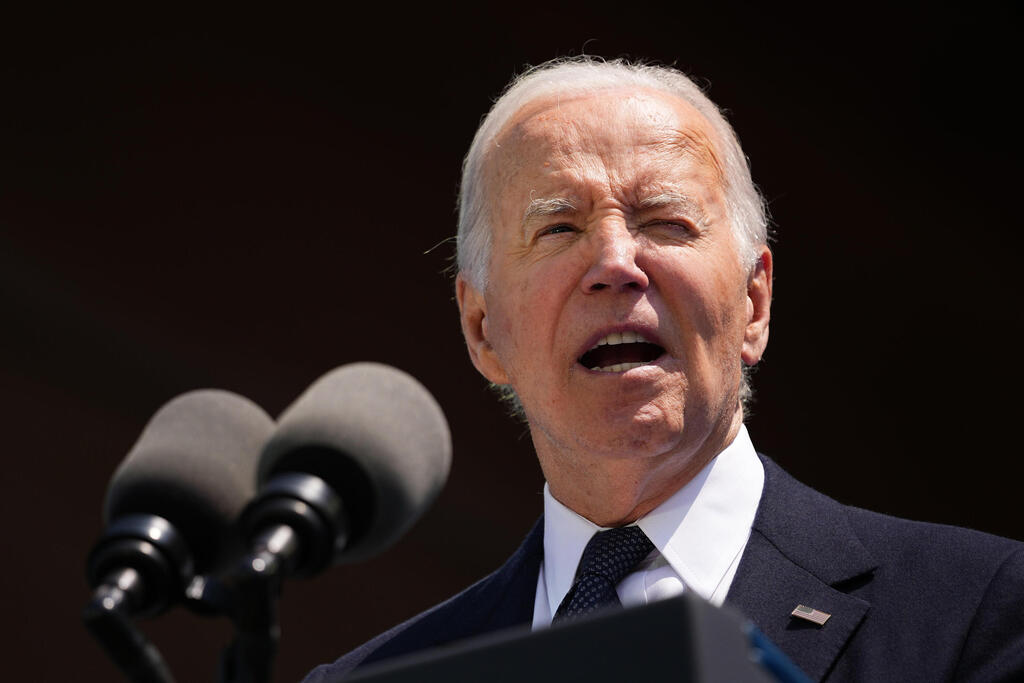The U.S. State Department is contemplating imposing sanctions on National Security Minister Itamar Ben-Gvir during the final stretch of President Joe Biden's tenure, according to sources familiar with the matter. These sanctions aim to balance the backlash stemming from the administration's decision not to impose an arms embargo on Israel, following an ultimatum letter. On Tuesday evening, the U.S. declared that Israel is not in violation of U.S. law on humanitarian aid to Gaza.
State Department officials are urging Secretary of State Antony Blinken to endorse the sanctions against Ben-Gvir – a move unprecedented in the annals of U.S.-Israel relations, which would mark the first time that the U.S. would impose sanctions on a sitting government minister. The U.S. has already sanctioned several organizations and individuals in the West Bank, alleging that they are involved in violence against Palestinians.
The Americans anticipate that a Trump administration would likely rescind the sanctions immediately upon taking office on January 20. However, they are banking on a "domino effect," in which a slew of countries and entities, including the European Union, Canada, Australia, New Zealand and Japan, would follow suit and levy sanctions against Ben-Gvir. Thus, even if Trump were to annul the sanctions, they would probably remain intact in other parts of the world.
The sanctions envisioned by the State Department would bar Ben-Gvir from visiting the U.S. and prevent American entities from transferring funds to him.
In recent months, the U.S. has also weighed sanctions against Finance Minister Bezalel Smotrich. Still, it is believed the administration will refrain from doing so, understanding that Smotrich might retaliate by not renewing Israeli banks' permission to engage with Palestinian banks in the West Bank, potentially leading to the Palestinian Authority's economic collapse. Recently, Smotrich extended this permission for just one month.
Globally, Smotrich and Ben-Gvir, who hold relatively senior government positions, are effectively boycotted. Beyond the U.S., senior European officials also avoid engaging with them in any professional capacity.
Last month, British Prime Minister Keir Starmer announced that London is considering sanctions on Smotrich and Ben-Gvir due to some of their statements about Gazan civilians, which he labeled as "abhorrent." As of yet, the UK has not declared sanctions against them, despite their remarks concerning Gaza Strip residents amid the ongoing conflict.
The National Security Minister sparked international outrage by calling for the cessation of humanitarian aid and fuel transfers to Gaza until all hostages are returned and also for advocating for "encouraging migration and conquering the Gaza Strip territories to hold them permanently." Smotrich, for his part, stated at an August conference that Israel provides aid to the Gaza Strip "because there is no choice" and suggested it "might be moral to starve two million Gazans." His remarks ignited a global uproar, echoed by international media and shared widely across various platforms by network influencers.
In addition to potentially sanctioning Ben-Gvir, the U.S. issued a warning Tuesday evening that legislation against UNRWA could lead to "consequences," as stated by the Deputy State Department spokesperson.
"There are still two months before the legislation takes effect, and we continue to discuss this with the Israeli government, clarifying that steps preventing essential aid to citizens could have legal and policy repercussions," said Vedant Patel. Addressing the decision not to impose an arms embargo on Israel, he noted: "We will continue monitoring Israel's actions and evaluate if they comply with American law. Should we find any non-compliance, we will take appropriate measures."
Get the Ynetnews app on your smartphone:



